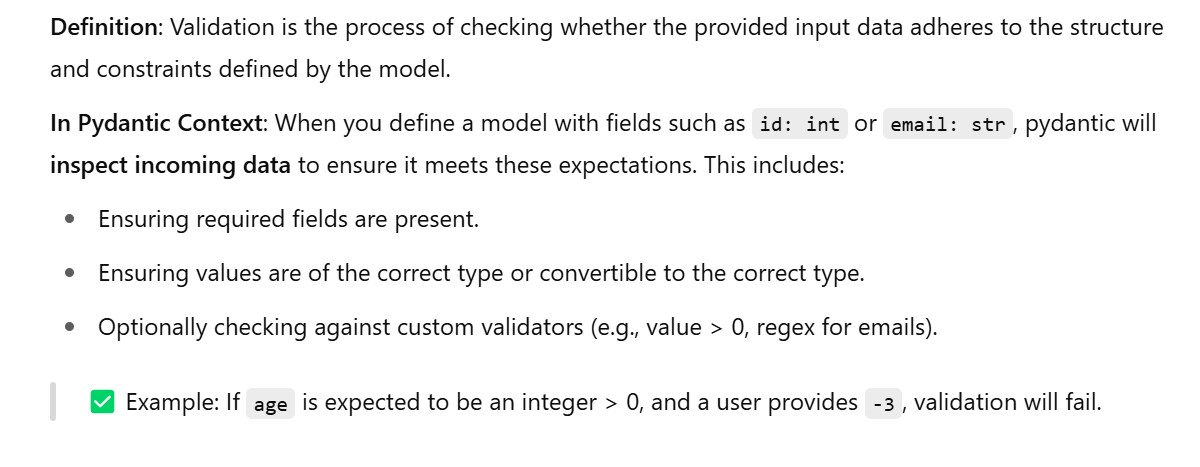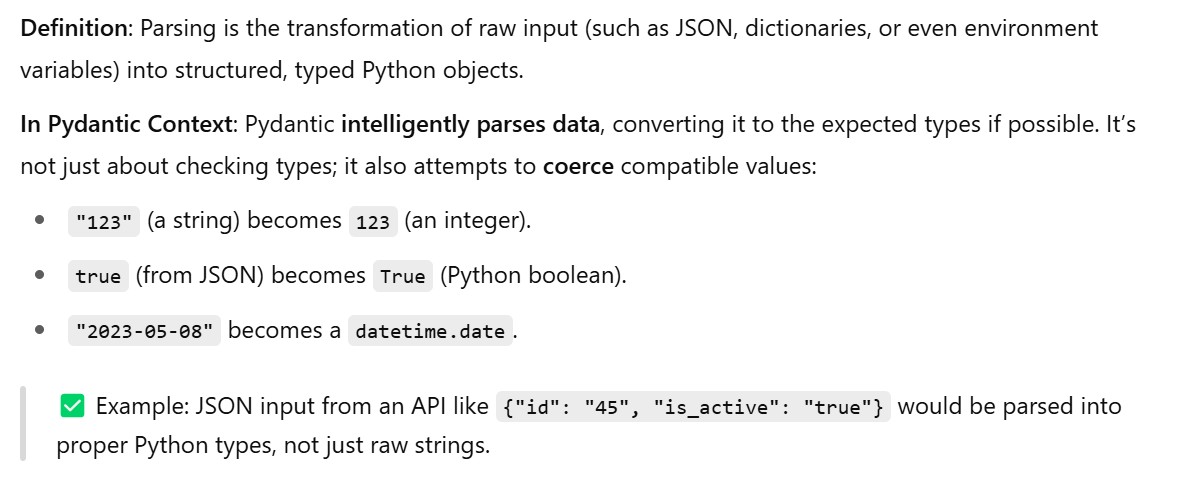Python – What Is Pydentic Python Library ?
Table Of Contents:
- What Is Pydentic Library?
- key Features Of Pydentic Library ?
- Common Use Cases Of Pydentic Library.
- Examples Of Pydentic Library.
(1) What Is Pydentic Library?

(2) Validate , Parse & Enforces Type .
Validation:

Parsing:

Enforces Types:

(3) Validation Example.
from pydantic import BaseModel, EmailStr
class User(BaseModel):
id: int
name: str
age: int
email: EmailStr
Valid Input:
valid_data = {
"id": 101,
"name": "Alice",
"age": 28,
"email": "[email protected]"
}
user = User(**valid_data)
print(user)
Invalid Input: Missing One Parameter
valid_data = {
"id": 101,
"name": "Alice",
"email": "[email protected]"
}
user = User(**valid_data)
print(user)

Invalid Input: Invalid Input Types
invalid_data = {
"id": "abc", # invalid: should be an int
"name": 123, # invalid: should be a str
"age": "twenty-eight", # invalid: not coercible to int
"email": "not-an-email" # invalid email format
}
user = User(**invalid_data) # Raises ValidationError

(4) Parsing Example.
Valid Input:
from pydantic import BaseModel
class Product(BaseModel):
price: float
# Valid parsing: '19.99' (string) can be parsed to float
product = Product(price='19.99')
print(product.price) # Output: 19.99 (as float)
Invalid Input:
# Invalid parsing: 'free' (string) cannot be parsed to float
product = Product(price='free') # ❌ Raises ValidationError

(5) Type Forcing Example.
Example 1: Enforcing int from a str
from pydantic import BaseModel
class User(BaseModel):
age: int
user = User(age='30') # string input
print(user.age) # 30
print(type(user.age)) # <class 'int'>
Example 2: Enforcing EmailStr type
from pydantic import BaseModel, EmailStr
class User(BaseModel):
email: EmailStr
user = User(email='[email protected]')
print(user.email) # [email protected]
print(type(user.email)) # <class 'pydantic.networks.EmailStr'>
Example 3: Enforcing datetime
from pydantic import BaseModel
from datetime import datetime
class Event(BaseModel):
start_time: datetime
event = Event(start_time='2023-01-01T12:00:00')
print(event.start_time) # 2023-01-01 12:00:00
print(type(event.start_time)) # <class 'datetime.datetime'>

